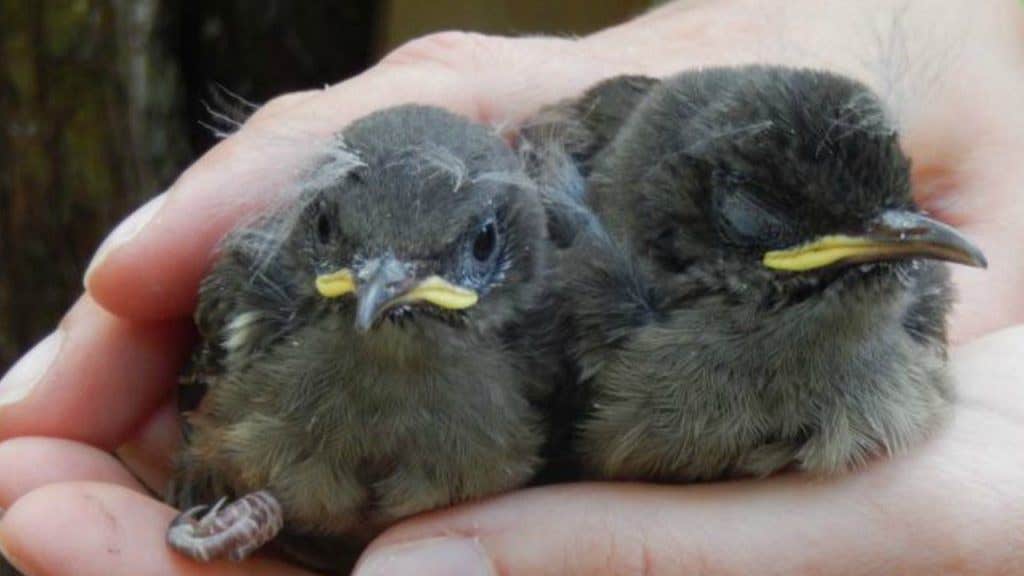Animals may evolve faster than previously thought
How fast can wild animals adapt? Faster than previously thought based on a global study examining rates of evolution in 15 species.

[July 14, 2022: Gilbert Wong, University of Auckland]
Aotearoa New Zealand hihi (stitchbird). (CREDIT: Creative Commons)
How fast can wild animals adapt? Faster than previously thought, it seems, based on a global study examining rates of evolution in 15 species, including the threatened Aotearoa New Zealand hihi (stitchbird).
Human impacts are leading to exceedingly rapid alteration of our world, from land conversion and habitat loss to climate change. Some have proposed that rapid adaptation could help some species persist in the face of these changes, but questions remain about whether adaptation could occur rapidly enough to make a difference.
Researchers looked at additive genetic variance, which determines the contribution of selection to genetic change that increases fitness, in long-term data from 19 species and found it to be higher than expected—often substantially higher. These results suggest that many species may have some capacity to adapt to our changing world.
A higher genetic contribution to differences in individual survival and reproduction means animal species can adapt more rapidly. This “fuel” of evolution may exist in wild animal populations at two to four times the rate previously thought, the study suggests, potentially aiding species’ odds of survival.
Related Stories:
The study, published in the journal Science, was led out of Australian National University by Dr Timothée Bonnet. Dr Anna Santure, of University of Auckland – Waipapa Taumata Rau, was among the co-authors.
New statistical methods were applied to data relating to 19 populations of wild animals around the world, including superb fairy-wrens in Australia, spotted hyenas in Tanzania, song sparrows in Canada and red deer in Scotland. The data pointed to the contribution of genes versus environment in the ability of species to survive and reproduce.
The research showed that the majority of the 19 wild animal populations were able to adapt rapidly.
Spotted Hyena (CREDIT: Creative Commons)
“Hihi are one of the unluckier species, with a lower capacity to adapt,” says Dr Santure. “However, this research suggests that many species can adapt quickly, provided they’re not totally outpaced by habitat loss and climate change.”
“For hihi, the analysis matches previous work that we’ve done suggesting a low capacity to adapt, but they can be buffered from extinction by conservation management actions such as provisioning food and parasite and predator control.”
Red Deer (CREDIT: Creative Commons)
The individual studies contributing to the research had been running for an average of nearly 30 years each, generating a remarkable resource of detailed records on wild animal populations.
For hihi, two datasets, from populations on Tiritiri Matangi island and at Zealandia Sanctuary, represented a combined 31 years and 90,000 hours of fieldwork from dedicated conservation staff, volunteers and students. The populations have been intensively studied since they were re-established, with breeding and survival data available for every bird.
Dr Anna Santure (CREDIT: University of Auckland)
Evolution can proceed extremely slowly, but changes can also occur within just a few years and are now more easily detected by scientists after advances in genetics and statistics.
Species introduced to Aotearoa New Zealand have provided examples of rapid adaptation to conditions very different than their native habitats. For example, weasels are generally larger than the European populations they came from.
In addition, ‘artificial’ (human-directed) selection causes considerable and rapid change in many domesticated and farmed species of animals.
For more science and technology news stories check out our New Discoveries section at The Brighter Side of News.
Note: Materials provided above by University of Auckland. Content may be edited for style and length.
Like these kind of feel good stories? Get the Brighter Side of News' newsletter.



